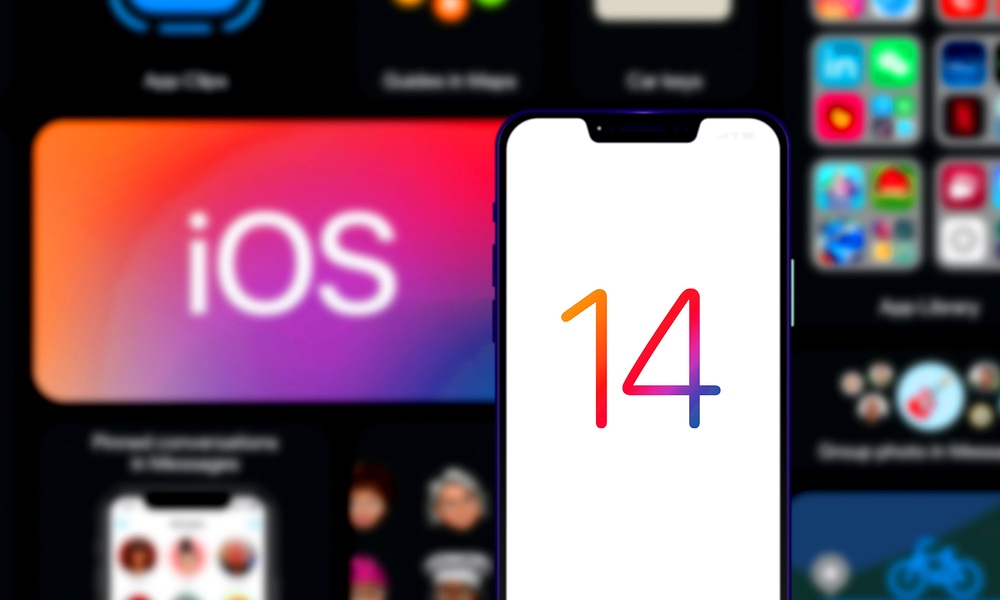Will iOS 14 Launch in September?
 Credit: Daniel Constante / Shutterstock
Credit: Daniel Constante / Shutterstock
Toggle Dark Mode
It’s shaping up to be a strange year for Apple product releases, and with the 2020 iPhone lineup now clearly delayed into October, that’s led to some speculation about when we’ll actually see iOS 14 land, since major iOS releases have almost always been tied to new iPhone releases.
In fact, for the past several years, Apple’s major iOS releases have run almost like clockwork, with the company previewing the new version at its June Worldwide Developers Conference, and then recapping the new features — sometimes with one or two additional surprises — alongside the launch of its new iPhones at its annual fall events.
In earlier years, that tended to coincide with the release of the final “GM” version of iOS to developers, although these days that tends to more quietly happen a week or so before the iPhone event, leaving Apple ready to announce that the major iOS release of the year will be available in the few days following the event.
Last year’s release of iOS 13 was actually the first one to break the cycle a bit, but that’s only because it was really such a hot mess for Apple.
It locked down iOS 13.0 in late August, beginning a whole new developer beta cycle of iOS 13.1 weeks before the earlier version launched to the public. iOS 13.0 landed at the usual time, with no shortage of problems, most of which weren’t fixed until iOS 13.1 arrived two weeks later. Meanwhile, there never was an iPadOS 13.0 — it went straight to 13.1 at the same time, and several of the other features promised in iOS 13 didn’t actually arrive until iOS 13.2 several weeks later.
Still, we’d like to think that iOS 13 was an aberration, and there’s every indication from the iOS 14 betas that we won’t see a repeat of that this year, however, it’s also telling that iOS 14 beta cycle is running a bit behind, since WWDC 2020 was held 2-3 weeks later than usual, but the cycle remains the same, with the iOS 14 betas having sped up to weekly releases in the second half of August, whereas in previous years that’s normally hit at the end of July.
Still Coming in September
With major new iOS releases traditionally happening in mid-September, this might lead us to believe that iOS 14 could be pushed back, which would make sense considering the October iPhone release, however yesterday’s omnibus report from Bloomberg actually cites sources within Apple as stating that iOS 14 will still arrive in September.
Mind you, they don’t say when in September that will happen, and September 30th is still technically part of September. However, there are still reasons why a mid-September release may not only be likely, but actually necessary.
Chief among these are reports that Apple could be preparing to release the Apple Watch Series 6 next week. It’s a given that the new Apple Watch model will be using watchOS 7, which in turns requires that it be paired with an iPhone running iOS 14, so Apple can’t realistically start selling the new Apple Watch until iOS 14 is also available. The same reports suggest that at least one new iPad model will arrive in September as well, which would presumably come with iPadOS 14.
In fact, the release of iOS 14 is pretty much central to all of Apple’s hardware release schedules this year, and whether the Apple Watch Series 6 and next-gen iPads are ready to debut in September is going to depend largely on whether iOS 14 is actually ready to ship.
Naturally, all of Apple’s new iPhones also ship with the newest version of iOS, which also often includes features specific to those new models, such as the new Camera app on last year’s iPhone 11 lineup. In the past, Apple has been able to keep some of these features more under wraps by holding back the final iOS release until after the new iPhones are announced, but that’s also becoming less important than it once was, and besides, since each model of iPhone has its own specific iOS build, it wouldn’t be hard for Apple to only include those features in the builds for the newest iPhone models.
Further, however, if iOS 14.0 were to arrive in September, it’s equally possible that the iPhone 12 could ship with iOS 14.1, which would be a whole new point version ahead, much like Apple did with the iPhone X in 2017, which arrived with iOS 11.1 preinstalled.
Right now, however, iOS 14 is substantially more stable than iOS 13 was at this point last year — so stable in fact that it’s easy to see how Apple could consider it ready for release very soon. The release notes for beta 6 list relatively few known issues, and at least half of them are minor developer-side problems rather than customer-facing bugs, so while iOS 14 isn’t quite ready for prime time just yet, it seems that’s it’s getting very close.
[The information provided in this article has NOT been confirmed by Apple and may be speculation. Provided details may not be factual. Take all rumors, tech or otherwise, with a grain of salt.]






